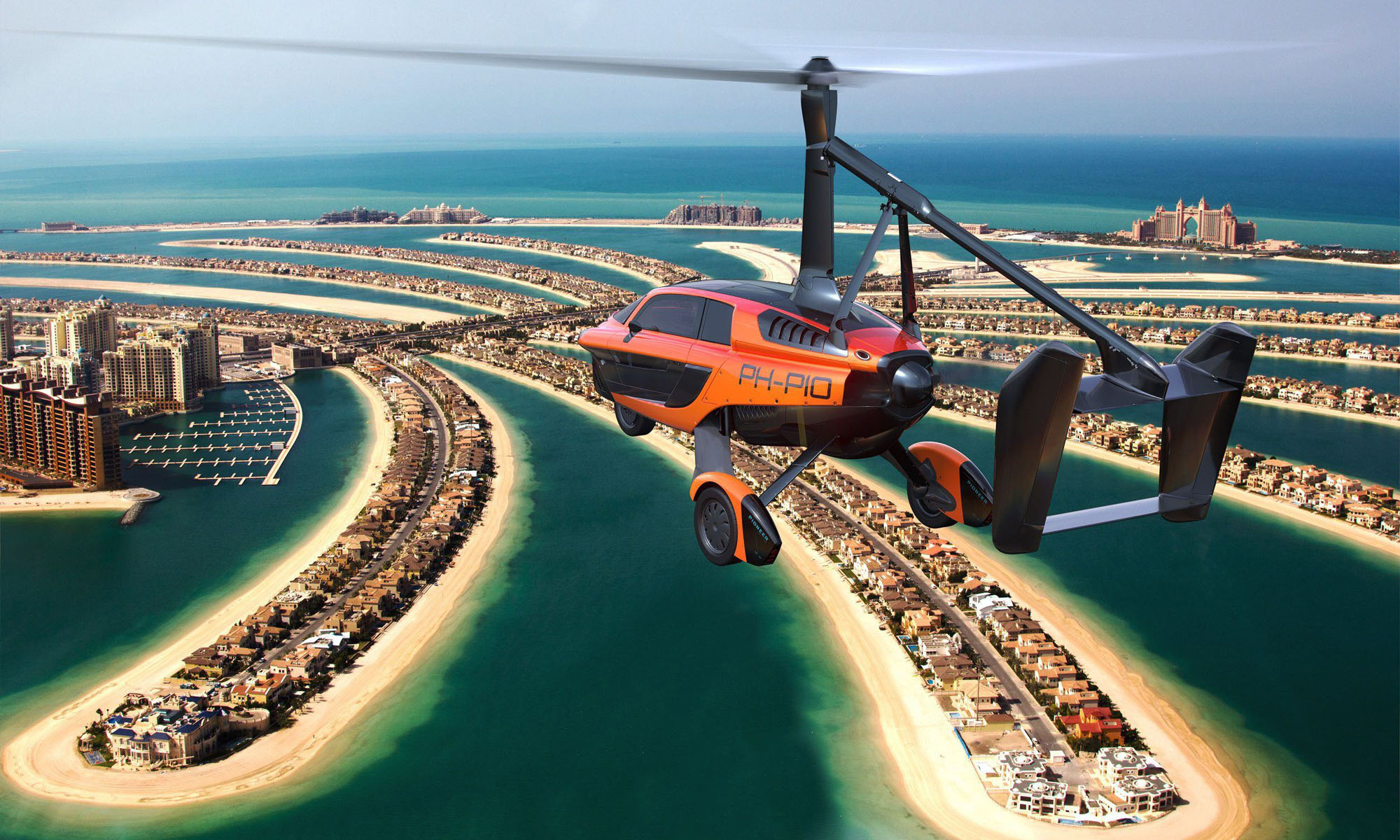News
Dubai Residents Will Soon Travel Door To Door By Flying Car
Aviation firm Aviterra has signed a deal with Dutch company PAL-V to purchase over 100 Liberty flying cars.

A Dubai-headquartered aviation company has signed an agreement with Dutch firm PAL-V to bring their groundbreaking flying cars to the Middle East.
Aviterra, a manufacturer of aviation and aerospace components, will purchase over 100 Liberty flying cars and directly invest in the European aviation company, they revealed in a recent joint statement.
At $799,000, the two-seat Liberty is a costly vehicle predominantly aimed at high-end, corporate, and government clients and individuals with very deep pockets. Described by PAL-V as a “personal aircraft for daily medium and long-distance commutes,” the Liberty combines a gyroplane and three-wheeled car with collapsable propellers and tail fins stored on the roof.
In car mode, the vehicle can reach 100 kph in under nine seconds and has a top speed of 160 kph. Changing into aircraft modes takes around five minutes, with the helicopter-like blades rising from the roof and the tail fins extending up and out from the rear. Finally, the car’s rear jacks up, and two hatches open to deploy the rear-facing propeller.

As an aircraft, the Liberty has a range of between 400 and 500 km and a maximum speed of 180 kph. It can reach an altitude of 11,000 feet and requires a runway (or straight road) of at least 200 meters for both takeoff and landing.
The current batch of Liberty flying cars run on regular gasoline but will eventually be configured as EVs “once batteries get lighter”, according to Robert Dingemanse, CEO and founder of PAL-V.
Also Read: Abu Dhabi To Develop $1 Billion eSports Island Facility
Meanwhile, as both Abu Dhabi and Dubai continue to make strong commitments to air mobility, other companies are also keen to deploy flying cars in the Middle East. Slovakian firm KleinVision, for example, is developing a flying vehicle called the Aircar, powered by a BMW engine.
Dubai’s Roads and Transport Authority recently signed agreements to use air taxis in the city in the next two years, while Abu Dhabi’s Investment Office has announced plans to introduce an all-electric air taxi fleet by 2026.
News
Yabi Introduces AI Financial Coach For Smarter Money Moves
The app provides real-time, personalized financial guidance, helping UAE residents manage money smarter, reduce debt, and build wealth effortlessly.

Imagine having 24/7 access to an expert financial advisor — someone who understands your spending habits, helps you save more effectively, and offers guidance for every financial decision. That’s the vision behind Yabi’s revamped platform, an AI-driven finance app designed to transform personal finance management in the UAE.
Unlike traditional budgeting tools, Yabi acts as an always-available AI advisor, analyzing your unique spending patterns and offering real-time, tailored financial advice. Whether you’re making everyday purchases, planning a big trip, or saving for a major milestone, Yabi keeps you on track and helps you make informed financial choices.
Rakhil Fernando, CEO of Yabi, explains the mission behind the platform: “Financial literacy is not optional — it’s essential. But most financial tools today feel outdated and overly complex. Yabi is here to change that by offering AI-powered financial coaching that’s smart, simple, and accessible to everyone in the UAE”.
Here are some of the updated app’s new features:
- AI-Powered Financial Coach: A 24/7 digital advisor providing real-time financial guidance based on your spending habits and available in multiple languages.
- Live Insights: Connect your bank accounts for a detailed breakdown of your expenses.
- Tailored Budgeting: Yabi creates a budget that fits with your actual spending habits rather than generic financial advice.
- Interactive Financial Education: Learn the essentials of saving, investing, and credit management through engaging content integrated into the AI experience.
- Automated Expense Tracking: Receive instant alerts on overspending, identify hidden charges, and cut unnecessary subscriptions with ease.
- Credit Score & Financial Health Monitoring: Get free credit score checks and AI-driven recommendations to enhance your financial standing.
Also Read: A Guide To Digital Payment Methods In The Middle East
Finally, Yabi is also gearing up to introduce its own debit card and a suite of financial products, making it easier to save, spend, and invest within a single platform.
Want to try Yabi for yourself? You can download the app on the Apple App Store and Google Play Store.
-

 News2 weeks ago
News2 weeks agoPassword & Crypto-Stealing Trojan Targets UAE Users Via App Stores
-

 News2 weeks ago
News2 weeks agoVISARUN.AI Raises $700K To Streamline MENA Visa Processing
-

 News1 week ago
News1 week agoHP Invests In Saudi Tech, AI, And Education To Boost Regional Growth
-

 News2 weeks ago
News2 weeks agoDubai’s RTA Unveils Solar-Powered “RailBus” Transit System

















